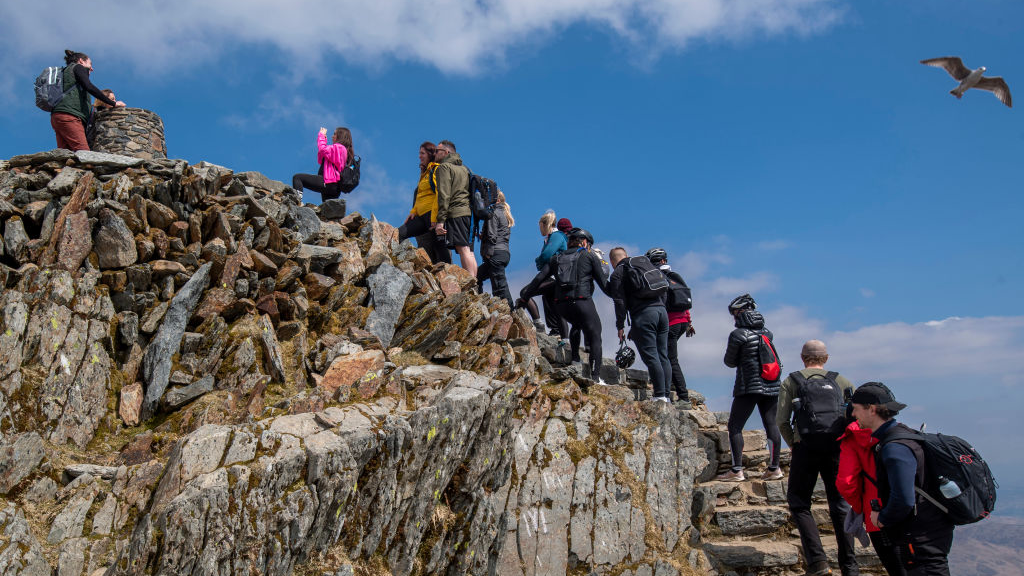British para-skier is first disabled person to ski to the South Pole solo and unsupported
Jonny Huntington completes historic Antarctic journey without the use of his left foot
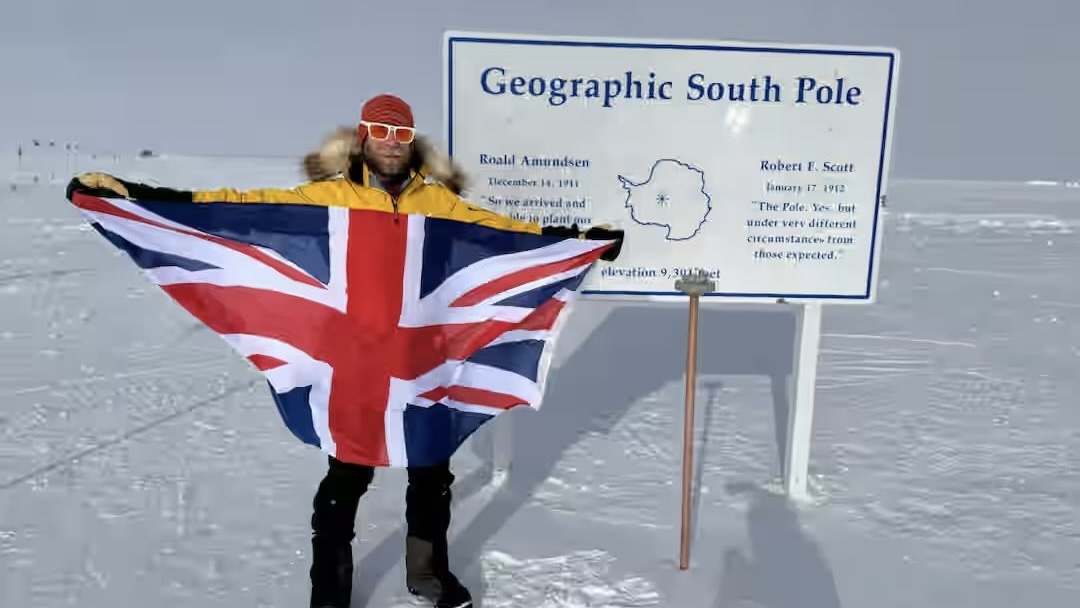
British stroke survivor Jonny Huntington has become the first disabled person to ski solo and unsupported to the South Pole. The para-athlete from Devon completed the 566-mile Antarctic journey in 45 days, 14 hours, 15 minutes.
Only 52 people have successfully skied to the South Pole without support and Jonny, 38, defied the odds to do so with only limited use of the left side of his body.
Ten years ago, a stroke left him with complete left-side paralysis from the neck down. After years of intense rehab, he lives with permanent brain damage resulting in a lack of control of his left foot and ankle, as well a reduced strength.
Arriving at the South Pole on January 6 at 5pm (GMT), Jonny said: “I’m exhausted but so proud to make it to the pole and complete an expedition that many thought impossible.
“It has pushed me to my limits – both mentally and physically – but there was no way I was going to give up."
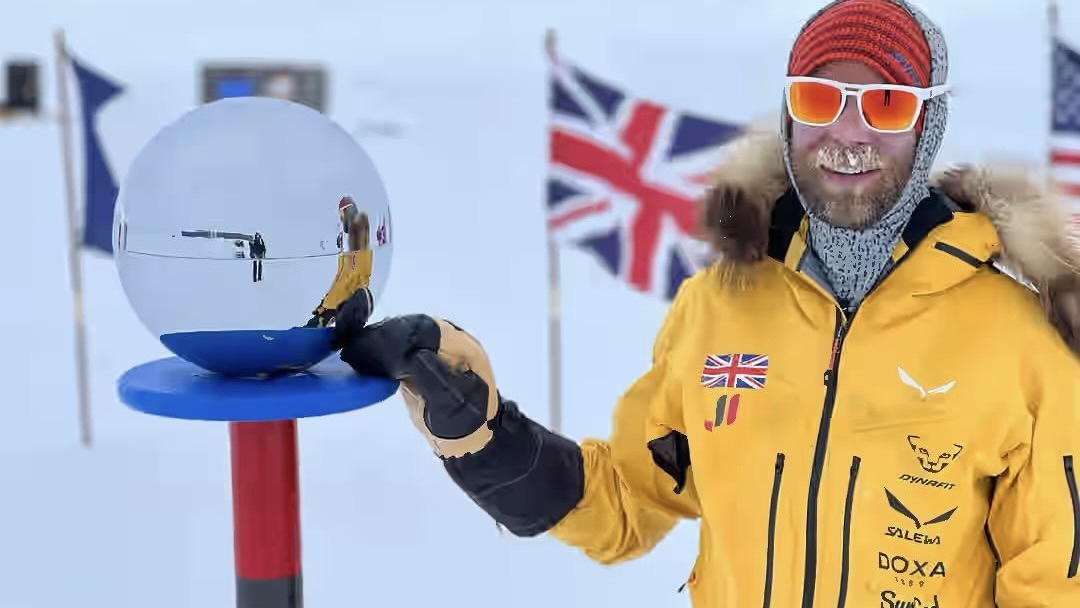
Stroke survivor Jonny makes Antarctic history
Jonny's epic feat started on November 21 at Fuchs-Messner on the edge of the Antarctic landmass.
On average, he skied for 11 hours a day, dragging a 200lb sled laden with the equipment and food he needed to survive the expedition.
Advnture Newsletter
All the latest inspiration, tips and guides to help you plan your next Advnture!
He faced Arctic temperatures as low as -40 F / -40 C and 24-hour sunlight. He reported that his progress was slowed by huge ice formations called sastrugi and soft snow.
This year has been particularly challenging for adventurers in Antarctica with other expeditions having to be aborted.
Jonny, who completed an ultra-marathon to raise awareness of the challenge before setting out, said: “Antarctica is a remote, hostile and uninhabitable environment, and some of the conditions were incredibly challenging.
“There were days when I had to finish earlier than planned because of dangerous conditions or pure exhaustion and self-preservation for the longevity of the expedition. This meant the expedition took longer than I planned.
“I ended the expedition with just 24 hours of rations left.”
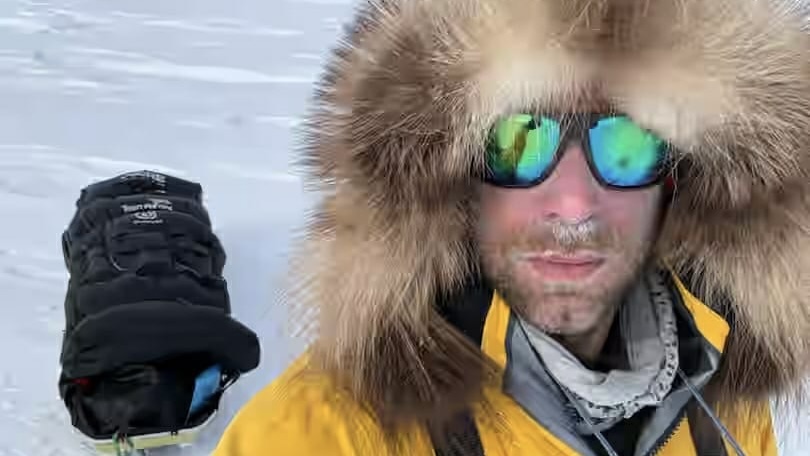
His disability obviously added to the arduous journey and he spent many months training. He said: “This was a massive undertaking for an able-bodied person. Add my restricted movements due to neuro fatigue from the brain damage [of the stroke] and it took the challenge to a whole new level.
“My disability means I have little control in my left ankle, meaning that my leg kind of freely rotates. I fell a lot, especially at the start of the expedition while I was getting acclimatised to the conditions, but just had to get back up, dust myself off and carry on.
"My hope is that by completing the expedition, I have shown that disability does not mean inability.”
Through his expedition, Jonny has raised money for four charities including the Invictus Games Foundation, Armed Forces Para-Snowsport Team, Team Forces and The Adaptive Grand Slam Foundation. You can still donate,
- The best ski backpacks: for adventures on and off-piste
- The best ski gloves: keep your hands comfortable and warm on the slopes
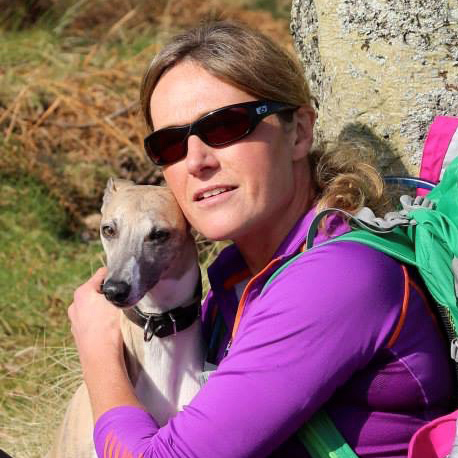
Fiona Russell is a widely published adventure journalist and blogger, better known as Fiona Outdoors. She is based in Scotland and is an all-round outdoors enthusiast with favorite activities including trail running, mountain walking, mountain biking, road cycling, triathlon and skiing (both downhill and backcountry). Aside from her own adventures, Fiona's biggest aim is to inspire others to enjoy getting outside and exploring, especially through her writing. She is also rarely seen without a running skort! Find out more at Fiona Outdoors.
